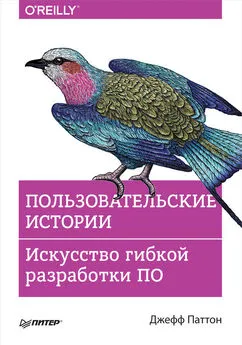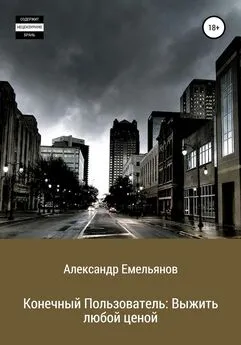Пользователь - o 3b3e7475144cf77c
- Название:o 3b3e7475144cf77c
- Автор:
- Жанр:
- Издательство:неизвестно
- Год:неизвестен
- ISBN:нет данных
- Рейтинг:
- Избранное:Добавить в избранное
-
Отзывы:
-
Ваша оценка:
Пользователь - o 3b3e7475144cf77c краткое содержание
o 3b3e7475144cf77c - читать онлайн бесплатно полную версию (весь текст целиком)
Интервал:
Закладка:
" Ein braver Mensch," said Seine Hochgeboren. "His sons have rendered admirable
service." He went on to speak of the family of his Comptroller-General, upon whose capability
and integrity he depended as had his father before him. While hearing this formal speech,
Lanny guessed what must have happened. The dowager Valkyrie had reminded the General
Graf that this was the lucky young Taugenichts who had married the fabulously wealthy
heiress. Not, as Seine Hochgeboren had supposed, some young snipe trying to make himself
important by claiming intimacy with one of a nobleman's employees!
So here was a great aristocrat manifesting condescension, noblesse oblige. He knew all about
Mr. Budd, oh, of course! "Kurt Meissner composed much of his music in your home, I have
heard." He didn't add: "Kurt Meissner was your mother's lover for many years, I have
heard." He talked about Kurt's compositions and showed that he really knew about them; echt
deutsche Musik which could be praised without reserve. A young Franco-American who had
built a studio for a musical genius to work in could meet on equal terms a Junker who had
furnished a cottage for the genius to raise his
family in.
Presently it came out that Lanny had served as a secretary-translator on the staff of the
American Commission to Negotiate Peace. "I should be interested to talk to you about those
Paris days," remarked the officer. "You might be able to explain some points about the
American attitude which have always been a mystery to me."
"I should be pleased to do my best," said Lanny, politely. "You must realize that your
beautiful Schloss made a great impression upon a small boy, and your father and yourself
appeared to me as very grand personalities."
Seine Hochgeboren smiled graciously. He hadn't the slightest doubt that, his father had been
a grand personality, or that he was one now. "Are you planning to come to Stubendorf this
Christmas?" he inquired.
"Kurt has been inviting us," was the reply. "I am not sure if we can arrange it."
"I would be happy if you and your wife would visit the Schloss as my guests," said the
General Graf.
"Thank you very much," replied the younger man. "I should have to ask the Meissners to give
us up."
"I think they would do so," the other suggested, dryly.
"I will let you know a little later. I must consult my wife." Another peculiarity of Americans—
they consulted their wives instead of telling them! But of course when the wife was as rich as this
one —what was her name?
XIV
They watched that valuable wife, dancing with a handsome young attache of the American
embassy staff. She was more than ever the young brunette Juno; some skilled couturier must
have had the thought, for he had made her a gown of white silk chiffon with a hint of ancient
Greece in it. For jewels she wore only her double rope of pearls; a fortune such as hers was
beyond any quantity of stones to symbolize, and had better be left to the newspapers to proclaim.
She danced with stately grace, smiled gently, and never chattered; yes, a young goddess, and an
ornament to any Schieber's ballroom.
When the party was over, Lanny escorted her upstairs. She had promised to have no more
than two glasses of champagne, and had kept her word, but was not a little excited by the
presence of so many distinguished persons, all of whom had costumes, manners, and modes of
speech calculated to impress the daughter of a onetime Wall Street errand boy. She and her
husband talked about this one and that while the maid helped her off with her gown. After she
had rested for the required fifteen minutes, the baby was brought in for a nursing; quite a bundle
now, nearly eight months old, and full of kicks and squirms and gurgles. She never needed any
invitation, but took hold promptly, and while she worked away, Lanny told the mother about
the invitation to Stubendorf. He had talked a lot about the "Christmas-card castle" with its
snow-covered roofs gleaming in the early morning sunshine, and had made it seem as romantic to
Irma as it had to him seventeen years ago.
"Shall we go?" she asked.
"If you would enjoy it."
"I think it would be ducky!" Then, after some reflection: "You and I really make a pretty good
social team, don't we, Lanny!"
7
I Have Seen Tempests
I
THE results of the election had set Heinrich Jung in a seat of authority. He called Lanny on
the telephone and poured out his exultation. There was no party but the N.S.D.A.P., and
Heinrich was its prophet! Therefore, would Lanny come to his home some evening and meet
his wife and one of his friends? Lanny said he would be happy to do so; he had just received a
letter from Rick, saying that the German vote had made a great impression in England, and if
Lanny would send a bunch of literature and some of his own notes as to the state of mind of
the country, Rick could write an article for one of the weeklies. Lanny wanted to help his
friend, and thought the English people ought to understand what the new movement signified.
This, of course, was right down Heinrich's alley; he volunteered to assemble a load of
literature—and even to have the article written and save Rick the bother!
Lanny left his wife in a comfortable family bridge game while he drove out to the suburbs
toward Potsdam, where the young official lived in a modest cottage. Heinrich had chosen
himself a proper deutsches Mädel with eyes as blue as his own, and according to the Nazi-Nordic
principles they had set to work to increase the ruling race. They proudly showed two blond
darlings asleep in their cribs, and one glance at Ilsa Jung was enough to inform Lanny that
another would soon be added. There was a peculiarity of the Nazi doctrine which Lanny had
observed already among the Italian Fascists. Out of one side of their mouths they said that the
nation had to expand in order to have room for its growing population, while out of the other
side they said that their population must be increased in order that they might be able to
expand. In the land of Mussolini this need was known as sacro egoismo, and Lanny had tried
in vain to puzzle out why a quality which was, considered so offensive in an individual should
become holy when exhibited by a group. He hoped that a day might come when nations would
be gentlemen.
Heinrich had invited to meet his guest a sports director of one of the youth groups in Berlin.
Hugo Behr was his name, and he was another exemplar of the Nordic ideal—which oddly
enough a great many of the party leaders were not. There was a joke going the rounds among
Berlin's smart intellectuals that the ideal "Aryan" was required to be as blond as Hitler, as tall
as Goebbels, as slender as Goring, and so on, as far as your malicious memory would carry
you. But Hugo had smooth rosy cheeks and wavy golden hair, and doubtless when in a gym
costume presented a figure like that of a young Hermes. He had until recently been an ardent
Social-Democrat, a worker in the youth movement in that party; not only could he tell all its
scandals, but he knew how to present National Socialism as the only true and real Socialism,
by which the German workers were to win freedom for themselves and later for the
workers of the world.
The human mind is a strange thing. Both this pair had read Mein Kampf as their holy
book, and had picked out what they wanted from it. They knew that Lanny had also read the
book, and assumed that he would have picked out the same things. But Lanny had noted other
passages, in which the Führer had made it clear that he hadn't the slightest interest in giving
freedom to the workers of other nations or races, but on the contrary was determined to put
them all to work for the benefit of the master race. "Aryan" was merely a fancy word for
German—and for other persons of education and social position who were willing to join with
the Nazis and help them to seize power.
However, Lanny wasn't there to convert two Nazi officials. He permitted Hugo Behr to speak
to him as one comrade to another, and now and then he made notes of something which might
be of interest to the reading public of Britain. Hugo was newer in the movement than
Heinrich, and more naive; he had swallowed the original Nazi program, hook, line, and
sinker; that was the creed, and when you had quoted it, you had settled the point at issue.
Lanny Budd, cynical worldling, product of several decadent cultures, wanted to say: "How can
Hitler be getting funds from von Papen and the other Junkers if he really means to break up
the great landed estates of Prussia? How can he be getting funds from Fritz Thyssen and the
other steel kings if he means to socialize big industry?" But what good would it do? Hugo
doubtless thought that all the party funds came from the pfennigs of the workers; that
banners and brassards, brown shirts and shiny boots, automatic pistols and Budd machine guns
were purchased with the profits of literature sales! Heinrich, perhaps, knew better, but
wouldn't admit it, and Lanny wasn't free to name the sources of his own information. Better
simply to listen, and make careful notes, and let Rick write an article entitled: "England,
Awake!"
II
Right after the elections came a trial in Berlin of three officers charged with having made
Nazi propaganda in the army. It attracted a great deal of public attention, and Adolf Hitler
appeared as a witness and delivered one of his characteristic tirades, declaring that when his
party took power the "November criminals," meaning the men who had established the
Republic, would be judged by a people's tribunal. "Heads will roll in the sand," he said. Such
language shocked the civilized German people, and Johannes Robin took it as a proof of what
he had been saying to Lanny, that all you had to do was to give this fellow rope enough and he
would hang himself. There was a demand from many quarters that Hitler be tried for treason;
but probably the government was of the same opinion as Johannes. Why hang a man who
was so ready to hang himself? The three officers were dismissed from the army, and Adi went
on making his propaganda—in the army as everywhere else.
Lanny invited Hauptmann Emil Meissner to lunch with him, and they talked about these
problems. Kurt's eldest brother, a World War veteran, had the younger's pale blue eyes and
close-cropped straw-colored hair, but not his ardent temperament; he agreed with Lanny that
Kurt had been led astray, and that the Führer was a dangerous fanatic. Emil was loyal to the
existing government; he said that would always be the attitude of the army, and was the
obligation of every officer, no matter how much he might disapprove the policies of the
politicians in control.
"Would you obey the Nazis if they should take power?" inquired the American.
Emil shut his eyes for a moment, as if to hide the painful reaction which such a question
caused in him. "I don't think it is necessary to contemplate that," he said.
Lanny replied: "The present election has made me do it." But he didn't press the point.
Читать дальшеИнтервал:
Закладка:




